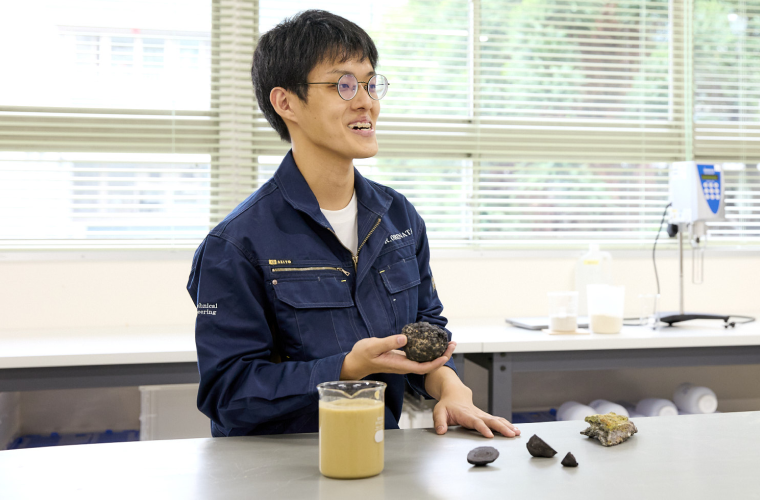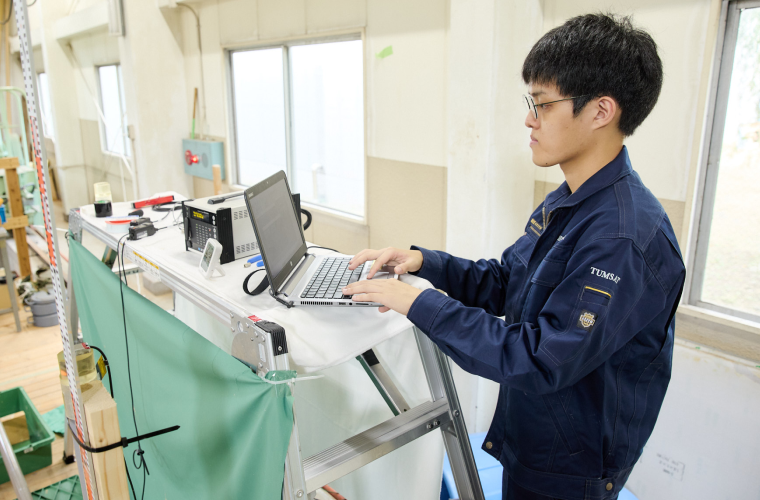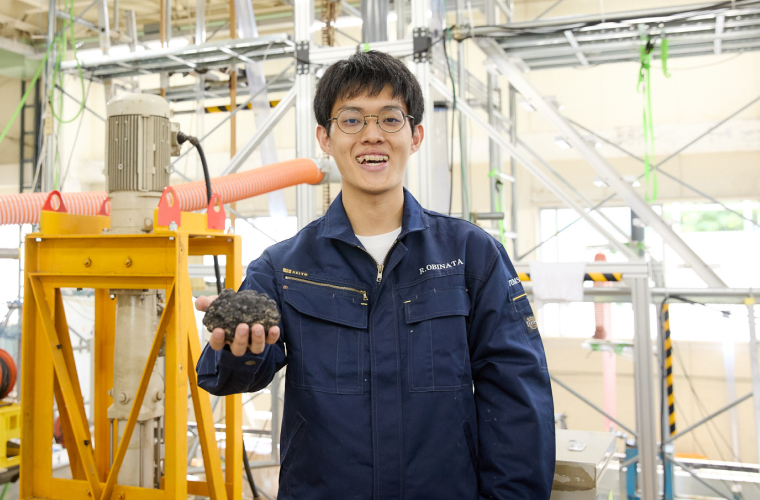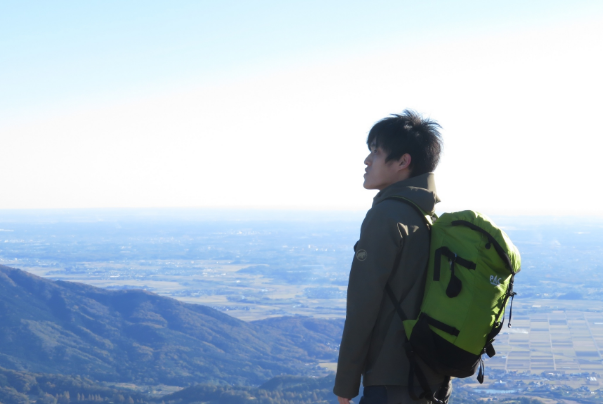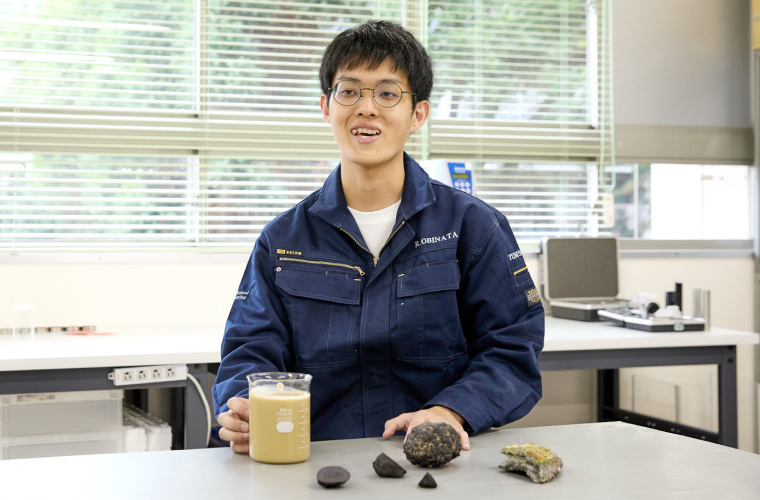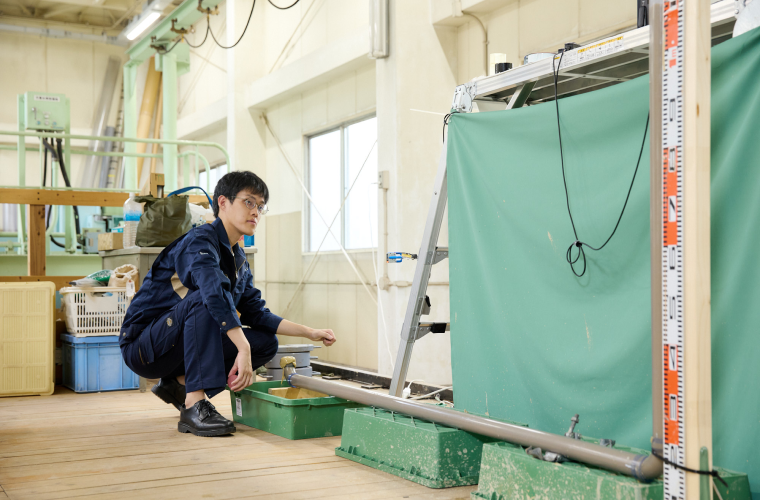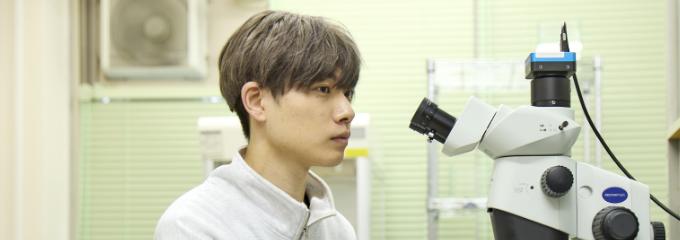Mountain climbing with friends who like nature.
Climb mountains together and discover different perspectives.
I'm from Nagano Prefecture, so my hobbies are mountain climbing and camping.There are many students at the University of Marine Science and Technology who like nature, and if you go mountain climbing with them, they will teach you about animals and plants that you don't know, so you can enjoy mountain climbing from a different perspective than before.
I took this photo when I went to Mt. Tsukuba at the end of November.At the foot of the mountain, we were able to enjoy the autumn leaves that were about to end, the strangely shaped rocks along the mountain trail, and the clear winter sky at the top of the mountain.






